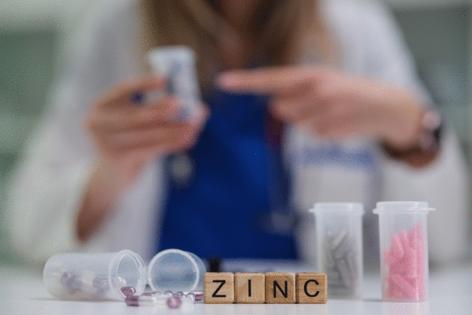On Nutrition: More is not always better
Published in Nutrition
At my recent dental checkup, I was gently informed by the dentist that I’d been a bit too vigorous with my brushing technique.
“Hold your toothbrush lightly with two fingers,” he demonstrated. “Not like you’re getting ready to stab something.”
Moderation is true in nutrition as well. Many of the nutrients we need for optimal health are only necessary in teeny tiny amounts. If we continuously exceed those amounts, there may be consequences to pay.
Zinc, for example. To say this mineral is essential is an understatement. Our bodies rely on zinc to build protein and genetic material, to enhance our immune function and heal wounds. Mighty zinc supports growth and development during pregnancy and in every stage of childhood and adolescence. It’s even involved in our sense of taste.
We consume zinc naturally when we eat oysters, beef, crab and cereals fortified with zinc. It’s also found in certain medications and is a common ingredient of multivitamin/mineral supplements.
People at risk for not getting enough zinc include those who have had bariatric surgery for weight loss, vegans who avoid all animal-based foods and people who drink excessive amounts of alcohol.
Zinc is also recommended for people with age-related macular degeneration (AMD) as part of a supplemental mixture of nutrients known as AREDS2.
As much as we rely on this nutrient, taking too much zinc over time can cause problems, according to the National Institutes of Health Office of Dietary Supplements (ods.od.nih.gov). Instead of giving a boost to our immune system, for example, excess zinc can depress our body’s ability to fight infections. Zinc toxicity also impedes the body’s ability to absorb essential nutrients like copper and magnesium.
It’s generally unlikely that one could consume excess amounts of vitamins or minerals from food. It’s much easier to overdose on dietary supplements.
The healthiest way to consume calcium, for example, is to include dairy foods, kale, broccoli and other calcium-rich foods in our daily diets.
People who don’t eat enough calcium-rich foods may need calcium supplements. Just remember, adults are warned not to exceed 2,000 to 2,500 milligrams of calcium a day from all sources.
Why? Excess consumption of calcium supplements may increase one’s risk for kidney stones. Too much calcium from supplements has also shown a link to heart disease and other problems, according to some research.
Vitamin D is a commonly consumed supplement since it isn’t found naturally in many foods. The Upper Tolerable Limit to safely consume this vitamin is 4,000 international units (IUs) a day. Exceeding this boundary over the long term could lead to serious health issues, say experts.
Like brushing our teeth, when it comes to supplements — unless recommended by your medical provider — remember that more is not always better.
____
©2025 MediaNews Group, Inc. Distributed by Tribune Content Agency, LLC.










Comments